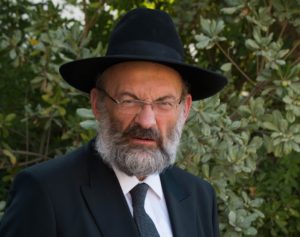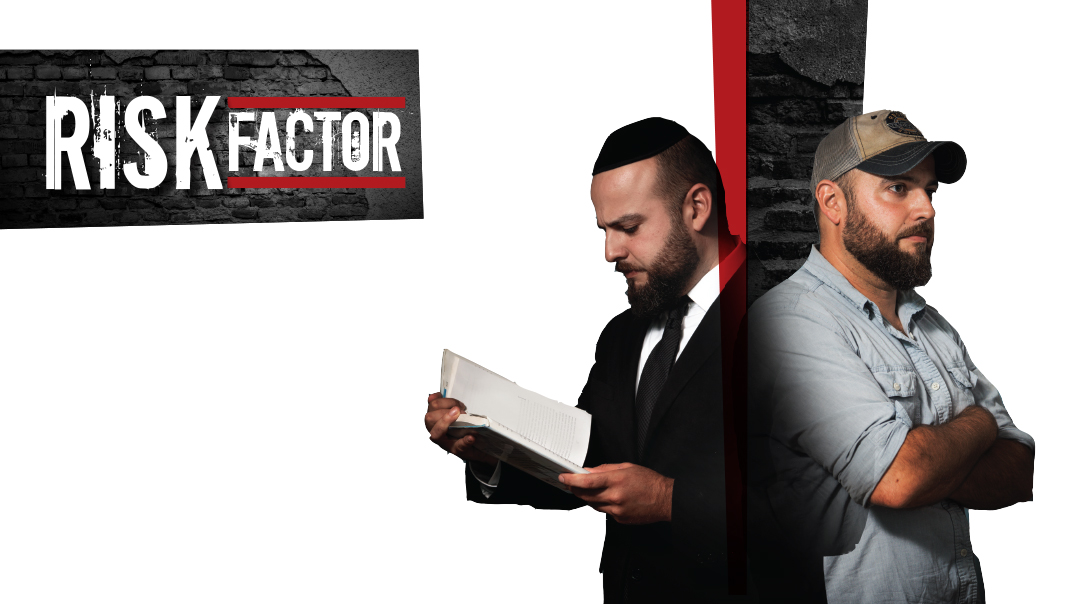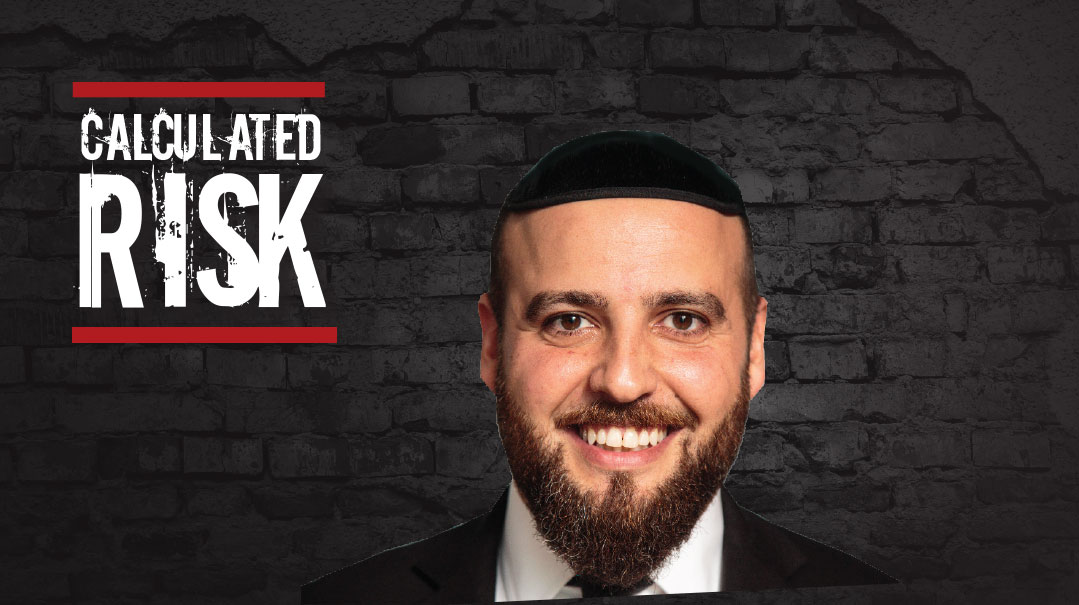A Big Pass
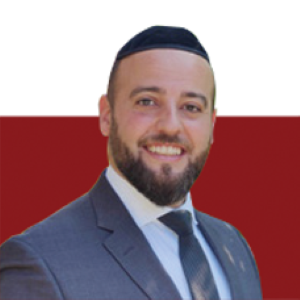
He looked at me. For the first time, there was no hate in his eyes. Only panic. And fear
When you’re recruiting for a yeshivah, you can categorize kids under the three Ps. Pursue — this is the kind of kid we’re looking for and will do well with. Pass — not our kind of guy, refer him to a more suitable school. The third group is Possibly — can go either way, speak to his references.
If you’re smart, you don’t evaluate the kids based on grades or talent. Those factors don’t hurt, but what you really want to know is if their personality will work well with your staff and current student body. A kid who feels accepted can always work on his Gemara skills and behavior. So barring extreme circumstances, the main criteria I looked for when I was recruiting for Yesod was whether or not the applicant would fit in with our rebbeim and the guys. To achieve success, relationship is everything.
That’s why, about four minutes into my interview with Mike, I knew it was a pass. A big pass.
“Look, I just want a year off,” he told me bluntly. “I’m not into keeping Shabbos or praying or anything like that. And I’m going to have a serious problem if anyone tries forcing me to be religious.” He peppered his speech with vulgarities, was snide and sarcastic, and aside from displaying zero interest in making a better life for himself, he was deeply resentful toward… well, basically everyone, everywhere.
I didn’t think Mike would make it in our yeshivah and I wanted to try to help him find another place. “So what are your interests, if not all the religious stuff?” I asked him.
“What is this, a date?” he asked. “Why do you care?”
“Because,” I said, “despite your best efforts to be rude, obnoxious, immature, and disrespectful, I actually like you, so I’d like to help you find a place that will work for you.”
He snorted. “You don’t know me.”
“Right, and since you won’t tell me anything about yourself, I’m going to have to assume. So I think your arrogance and general disagreeableness is just a cover for the fact that you feel things very deeply. You’ve been burned very badly by people in the past and you refuse to give anyone any leverage by letting them get to know you.”
Mike stared at me.
“That usually happens,” I continued, “to pretty awesome people who expect other people to be as awesome as they are, and then get severely disappointed.”
He laughed way too loud and said, “I have never heard a person get something more wrong. Like, ever in my life, dude.”
Then he stood up and walked out.
“Mike Mayer,” Rabbi Brickman read at our recruitment follow-up and acceptance meeting. “There are zero notes on him and his application is only half filled out. Yossi, I’m assuming you met him?”
“Yeah, that’s mine,” I said. “He’s a pass.”
“Really? There’s barely any info here,” he said.
“Yeah, well, a meeting like that leaves an impression. Big, big pass,” I said.
“That impressed, huh?” He grinned. “Okay, I’ll go with you on this.”
It wasn’t the first time I wasn’t zocheh to be the shaliach and it won’t be the last, I told myself. Mike would have hated everything about our program and we wouldn’t have been able to help him. He wasn’t ready yet. There was nothing I could do for him. I would probably never see him again.
But I did see him again. When he showed up on the first day of school.
“Uhhh… Rabbi, why is Mike Mayer here?”
“ ‘Big pass,’ Yossi, your words, not mine. I accepted him,” Rabbi Brickman said. He looked confused.
“What?!” I exclaimed. “ ‘Big pass’ doesn’t mean ‘accept,’ it means ‘pass,’ as in ‘I’ll pass!’ ”
“No, ‘pass’ means ‘pass him through.’ That’s what it’s meant for the past 20 years that the rest of us have been recruiting.”
Okay, I thought. We can do this. Maybe a summer away somewhere had changed his attitude. I mean, he showed up, so that meant he wanted something from all this, right?
I was right. Mike had changed. For the worse.
He was even more obnoxious than I remembered. He disturbed the tefillos and classes any way he could. He tried to rally the guys against the rules and the rabbis. He was extremely disrespectful and a general negative presence.
Rosh Hashanah was two weeks into the school year. This was always a turning point for so many guys — as Rabbi Shua Rose led the davening, he drew everyone there along with him. No matter how far a guy could be, you just might find him on top of a table, singing and dancing along as the rabbi’s heart lit his soul on fire.
My one worry was Mike. The past two weeks had made it clear that davening was a big trigger for him. He hated everything about it and rarely stayed past Shemoneh Esreh. If he actively tried to sabotage the davening, he could ruin everything.
When I filled out the seating chart, I put Mike in the seat next to me.
To my surprise, Mike stayed for most of the davening. As usual, he started getting antsy around the end of chazaras hashatz. As my son began pulling the side of my tallis to cover his head for Bircas Kohanim, I saw Mike make a move to leave.
My son took my hand in his own little hands and placed it on his head. I was still staring at Mike making his way around me. Something was happening here, but I didn’t know what.
With my other hand, I reached out and touched Mike on the shoulder.
He looked at me. For the first time, there was no hate in his eyes. Only panic. And fear.
He looked down at my son nestled under my right hand under my tallis.
I lifted my left hand and put it on Mike’s head, draping the tallis over him. I waited for him to slap it away. To laugh and leave. To say something rude.
He didn’t. He moved in closer.
At first, he just stood there. Then he covered his face. Then he cried.
I would find out later what those tears were — the tears of a little boy forced to go to shul every week alone. Little Mike wished he could say Kaddish. But he couldn’t. You can’t say Kaddish just because your father left you and your mother and is never coming back, son, sorry. Instead you have to stand and watch every father take his son into his beautiful white tallis and hold him close. But not you, because no one wants to hold you.
Ten years later, on my last Rosh Hashanah in Israel, I stood at Bircas Kohanim and watched Mike use his own tallis to cover his beautiful son.
Rabbi Brickman was right. Mike gets a pass.
Identifying details have been changed to protect the privacy of patients, their families, and all other parties.
Rabbi Yossi Bensoussan serves as mashgiach ruchani at Yeshiva High School of Cleveland. He is a Certified Alcohol and Substance Abuse Counselor (CASAC) who currently maintains a private practice, and does motivational speaking and community education on addiction all over the US and Israel.
(Originally featured in Mishpacha, Issue 827)
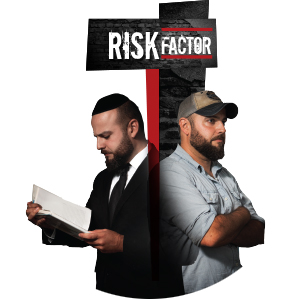
Oops! We could not locate your form.






